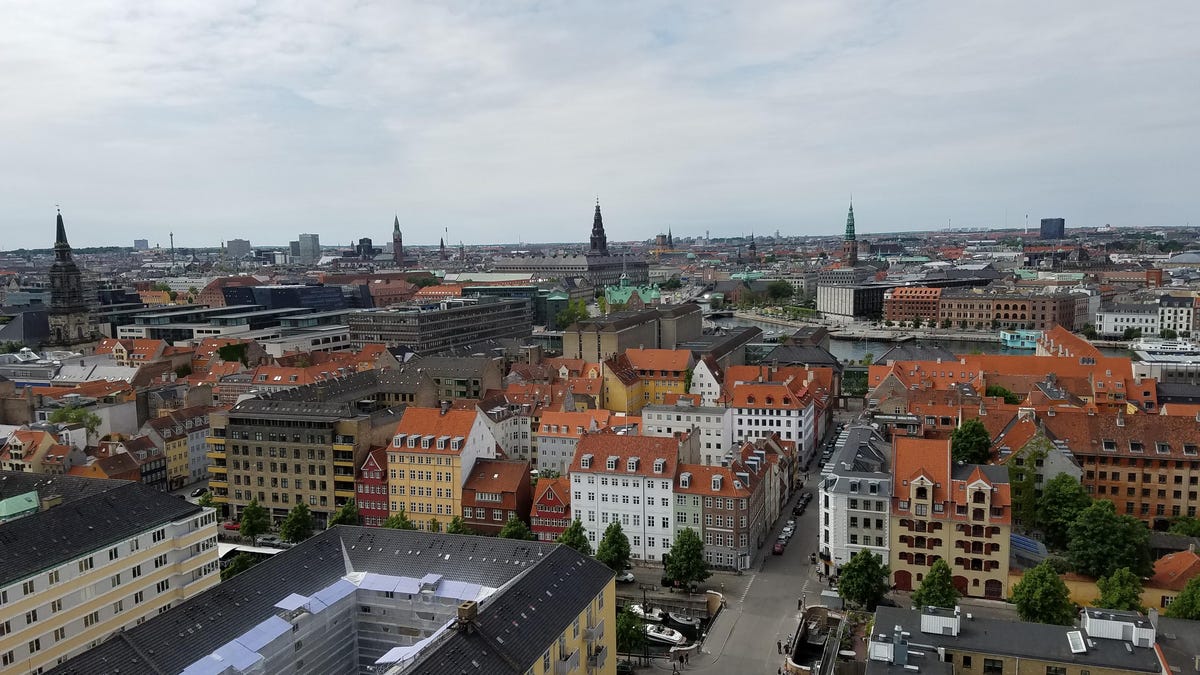If Uber disappeared what would you do? One city's story
Commentary: Up to a quarter of Copenhagen’s 1.2 million residents were using Uber -- until it went away. I visited to see how the Danes are coping.

When I passed through Copenhagen earlier this month and decided to visit Tivoli Gardens, I fired up the Uber app to help me navigate narrow congested alleyways. The map showed zero cute little black cars. Instead, a terse message informed me the service was no longer available in Denmark's charming capital city.
"Wait … what?" I literally said out loud to no one.
Isn't this supposed to be one of those Scandinavian techno-utopias where everything is digitized and you can visit the world's largest 3D printer store? Isn't that how they justify charging 12 euros for weak beer?
There is life after Uber, but it helps if your country is one of those bike-obsessed, Scandinavian techno-Utopias.
I felt a distinctly new sinking feeling -- similar to the one I get when the signal on my phone switches from "LTE" to "3G," but with added dread. No Uber means having to deal with foreign taxis and their malfunctioning meters and credit card machines, not to mention drivers who don't have turn-by-turn directions and won't offer me bottled water.
For travelers and the otherwise vehicularly challenged, Uber, and competitors like Lyft, have become a convenient means of getting around cities. It's easy to imagine the pain it would cause the peripatetic who have come to depend on ride-sharing apps were the services they provide to vanish overnight.
Yet that's exactly what happened in Denmark. Uber, which operates in more than 600 cities, shut down operations in Denmark on April 18 in response to new laws that would force ride-sharing drivers to essentially convert their vehicles to taxis. Major competitors like Lyft had yet to launch in the city when the law came into effect.
"(New regulations) will not allow drivers to use their privately owned cars for ride sharing and requires the installation of expensive, old-style taximeters and seat-sensors -- effectively blocking the use of modern technology, like smartphones, which can serve the same functions," Uber said in a statement announcing its withdrawal from the Nordic nation.
So about two and a half years into Denmark's Uber era, some 2,000 Uber drivers and 300,000 Danish riders were plunged back into the dark ages of transit. That's according to numbers from Uber itself. The service launched in Denmark in late 2014, but only operated in Copenhagen.
Finally arrived in Copenhagen for #3daysofdesign - who knew Uber was banned here?!.
— Nest.co.uk (@nest_co_uk) June 1, 2017
What? No Uber in Copenhagen any more?! End of days!!
— Food Geek (@FoodGeekUK) May 13, 2017
Yet, as I learned a few months after the Danish Uberpocalypse, everyone is moving on (and around) in that city just fine.
As it turns out, getting around Copenhagen before Uber launched there wasn't hard. On social media, mostly foreigners and travelers lamented the loss of ride sharing, while local taxi companies and developers of at least one app designed to connect Copenhageners with taxis -- similar to Uber but within the bounds of Danish law -- began planning to move in on the territory now abandoned by Silicon Valley.
Denmark isn't the only nation to be stripped of its Uber-ing privileges. Bulgaria and Hungary have their own regulations favoring taxis, essentially forcing the world's largest ride-hailing company to suspend operations in each country in 2016. Neither of those runs lasted as long as Uber's time in Copenhagen, but like in the Danish city both withdrawals were met with delight from taxi companies.
I asked a few Copenhageners how Uber's disappearance had affected them, and for the most part, they were indifferent. Most said they hadn't used the service much. Perhaps that's not a surprise in the bike-crazy Vesterbro neighborhood where I asked.
Bikes and bike lanes abound to such a degree in Copenhagen that even famously bicycle-friendly Portland, Oregon, could learn a thing or two about two-wheel transit from the Danes. Two weeks ago during the annual Distortion festival, which "celebrates youth culture" with electronic dance music and cheap beer-fueled block parties around the city, the bikes piled up on every corner, locked to every inch of fence, spilling into sidewalks.
Clearly the locals were having little trouble getting around in the post-Uber age, but it was more of a challenge for bikeless tourists like me left bewildered by the lack of buses (many lines were temporarily suspended because of the festival).
Even after Uber, taxis aren't nearly as prevalent in Copenhagen as in other cities with ride sharing like New York. Waiting at a taxi stand in a busy shopping district for several minutes and then wandering the streets for several blocks hoping to come across a unoccupied cab left me and my family on foot.
Second day in #Copenhagen with hour+ wait for taxi. Bring back #uber
— Kenny Powers (@VMelson) May 11, 2017
When we finally found the number of a local taxi service, the driver filled us in on the drill. Cabs are pretty quick to respond to calls and web orders (within 10 minutes in our case) and most companies have mobile apps that mimic many of the same features as the ride-sharing apps.
After installing a few local taxi apps, I was right back to hailing and scheduling rides, as well as tracking and messaging my driver. It was all a strangely familiar experience, even if there wasn't any bottled water.
Batteries Not Included: The CNET team shares experiences that remind us why tech stuff is cool.
CNET Magazine: Check out a sampling of the stories you'll find in CNET's newsstand edition.

